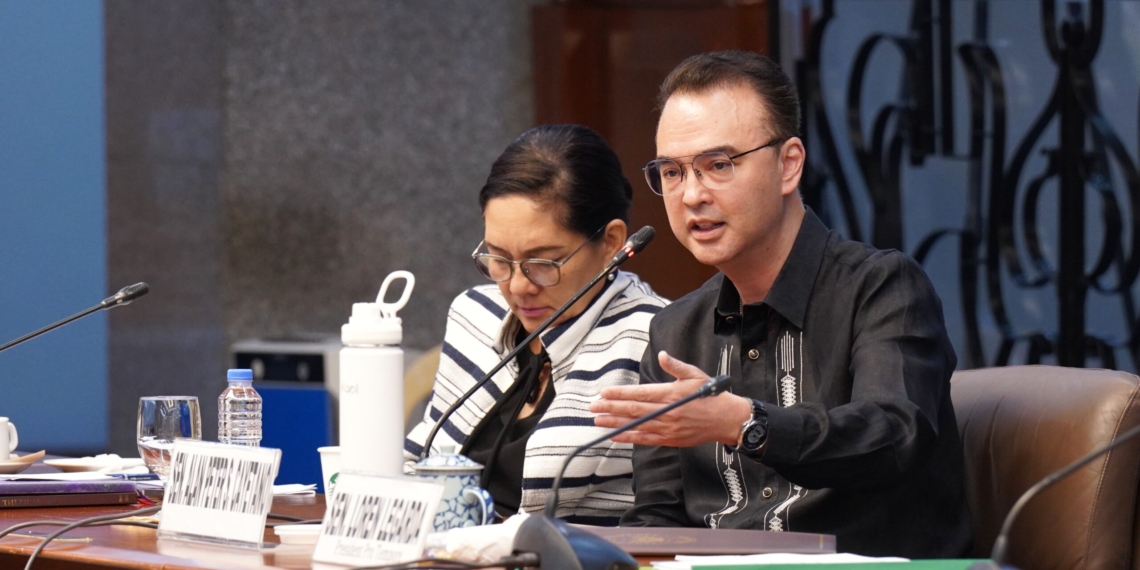Senator Alan Peter Cayetano on Monday urged those seeking to amend the 1987 Constitution to first consider the underlying protective nature of the country’s Charter, saying there is a reason its framers made it “difficult to amend.”
“The Constitution was made very protective (and) you can’t just change it on a whim,” the independent senator said during the first hearing on Resolution on Both Houses No. 6 on February 5, 2024
“No one is saying, ‘Don’t amend the Constitution’ because no one said it’s a perfect document. But what is the underlying principle behind the Constitution, and why did the framers of the Constitution make it difficult to amend?” he said.
Cayetano also urged those calling for amendments to uphold the ideals that the Preamble of the Constitution represents, noting that the controversy that has been sparked by the People’s Initiative (PI) has threatened to divide the Senate and the House of Representatives.
“I really want to honor everyone who worked on the Preamble. Throughout this debate, I hope this will guide us because what’s happening now is the opposite of truth, justice, freedom, love, equality, and peace,” he said.
Cayetano also acknowledged that while the proposed amendments deal with economic provisions, what the people are concerned about are the possible political amendments that could be introduced, particularly on changing or removing term limits of elected officials.
He said any such change should not be applicable to current politicians but only to future ones.
“If we can find a way to amend the Constitution but it is effective 10 years from now, then I don’t think anyone will accuse any of us of doing this because of power,” he said.
Citing the oft-quoted saying, “power corrupts, and absolute power corrupts absolutely,” Cayetano said this was the reason the 1987 Constitution — which was framed after the 1986 People Power uprising that deposed then-President Ferdinand Marcos — “was made to temper this power in the three branches and to make sure not one powerful group can manipulate our legal system.”






